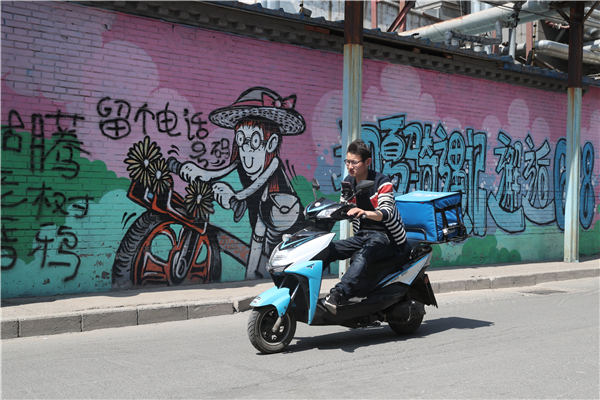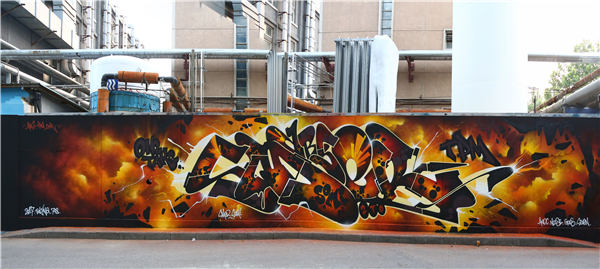
From the People's Daily app.
And this is Story in the Story.
A report on China's emerging occupations revealed that new jobs have been created along with artistic and digital-oriented professions. Those born between 1990 and 2000 make up the bulk of these new professions.
The top five reasons for the growth include fast development of promising industries, passion, opportunities to work with different people, the appeal of trying new things, and flexible working hours.
"Slash youth" is a term used to describe young people who have more than one area of expertise, a common trait among recent jobholders.
Most of these new professionals are highly educated. In addition to earning a high income, they also achieve a greater work-life balance.
They have been described as free, confident, self-incentivized, and having pride in their work.
Today’s Story in the Story looks at how China’s rapid development has created new opportunities for those who want to turn their passion into a career.

The 798 Art District, a popular area showcasing contemporary Chinese art in Beijing, is also home to graffiti. (Photo: China Daily)
People taking a stroll along-side the canal in the Yuan Dadu City Wall Ruins Park in northern Beijing may be surprised to come across graffiti. It also is found on walls in the city's old Shuangjing neighborhood, the Wangjing section of Jingmi Road, the 798 Art District and the downtown Gulou area.
Finding a wall on which to work is the first step for a graffiti artist. For 10 years, Chen Yang, 27, from Jiaxing, Zhejiang Province, has ridden his electric bicycle around the city to locate suitable sites.
He prefers abandoned buildings awaiting demolition. Sometimes, he paints over an existing work, declaring such an act a "declaration of war.”
"If you think others' work is not good enough, you can cover it with your own painting, but you need to do a better job. You need to think hard, and your art has to be more creative. The competitive element is the fun part of street art," he said.
Ye Shu, a Beijing street artist, said graffiti first appeared in the city at the end of the 1990s. In 2010, he and his team, ABS Crew, started to write graffiti on walls along Jingmi Road in Chaoyang District.
The walls along the road, which extend for more than 1 kilometer, are now almost all covered with colorful graffiti works.
The 798 Art District, a popular area showcasing contemporary Chinese art, is also home to graffiti. Ye said street artists have to ask the management team for permission before painting on the walls in the zone.

One of the works by Ye Shu's team, Abs, is displayed at the 798 Art District in Beijing. Ye has sold a 2-square-meter graffiti work for 20,000 yuan. (Photo: China Daily)
Writing and drawing are significant forms of graffiti. Artists write letters and words with spray paint, while drawing is aimed at creating patterns. There is also commercial graffiti, with artists being paid by companies to create work for them.
Some brands who want to connect with the younger generation invite graffiti artists to work on designs for them. Zheng's team decided to form a company at the end of 2016 to take commissions from brands.
All four members of the team are married and have children.
"We need to take responsibility for our families, and our graffiti skills help us to design works that showcase our strengths in painting about traditional Chinese culture," said Zheng, who is the company's CEO.
The four have been creating graffiti since they graduated from college.
They take a two-month break from design work every year, devoting themselves to creating graffiti on the streets instead.
Last year, they staged the Golden Flow graffiti contest in Ningbo for new street artists, which attracted a dozen groups from China and about 30 from other parts of Asia.
Using the profits they made from running the company, they declined sponsorship for the contest, enabling the event to represent "pure street art.”
Zheng said, "When organizing the competition, we encountered many surprises, but they were all good ones, such as the help we received from a hotel and a mall that provided the venue."
Other cities have made approaches to stage the contest, but the team has rejected them.
"Graffiti is the love of our lives and has brought us a lot. We just want to do something in return," Zheng said.
"My parents didn't want me to be a street artist, but they have gradually accepted what I do, and sometimes they feel proud of the street art that I paint,” he said.
(Produced by Nancy Yan Xu, Lance Crayon, Brian Lowe, and Paris Yelu Xu. Music by: bensound.com. Text from China Daily and Global Times.)


